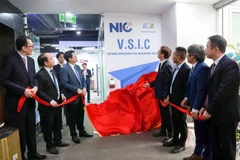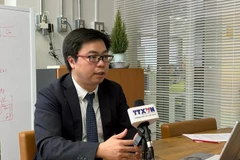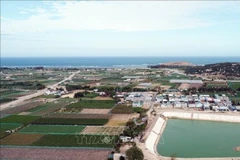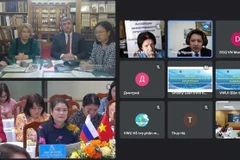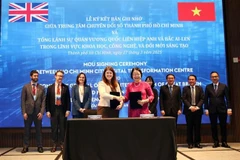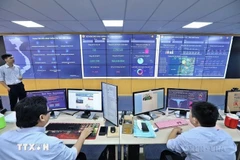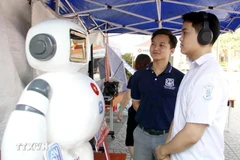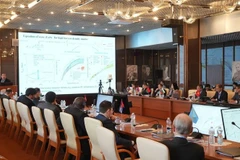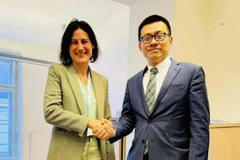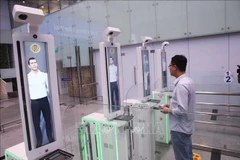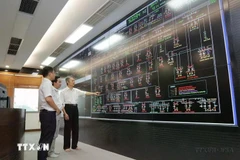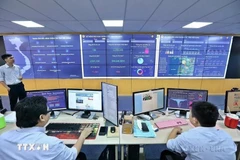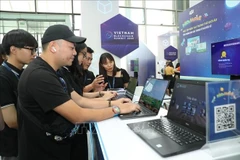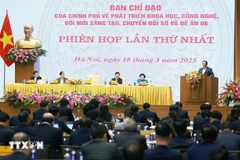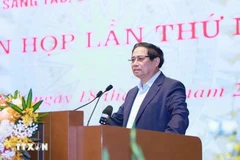Hanoi (VNA) – In Vietnam, the public sector has a pivotal role to play in shaping and guiding the development of artificial intelligence (AI), which emerges as a key driver of innovation and sustainable development amidst the Fourth Industrial Revolution.
Several central and local government agencies have begun applying AI to administrative management and public services, demonstrating the commitment to exploring the transformative potential of intelligent technologies.
Human capital challenges
The scarcity of AI professionals presents a significant hurdle for Vietnam’s technological ambitions. Assoc. Prof. Dr. Nguyen Xuan Hoai, Director of the AI Institute under the University of Engineering and Technology, Vietnam National University, Hanoi, said that each year the AI talent pool meets only 10% of the recruitment demand, with only 30% of the 55,000 annual IT graduates capable of working in the AI-related roles.
Beyond human resources limitations, Vietnam faces additional challenges, including restricted access to top AI experts and advisor, as well as limited access to infrastructure, platforms, and tools for businesses.
Many believe simply adopting new technologies like AI guarantees success. However, AI is a unique technology of transformation that requires more than just technology, he noted.
Meanwhile, Deputy Director of the High Technology Department under the Ministry of Science and Technology Tran Anh Tu opined, the generative AI sector is projected to contribute up to 14 trillion VND (547.5 million USD) to Vietnam's digital economy by 2030. However, challenges related to human resources development and responsible AI application should be resolved to capitalise on AI’s potential.
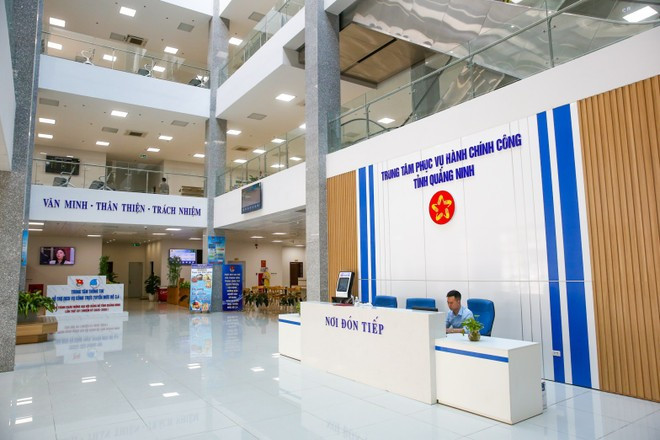
Vietnam’s AI development vision
Vietnam has articulated a clear AI development strategy. The Politburo’s Resolution No.57-NQ/TW, issued on December 22, 2024, on making breakthroughs in sci-tech development, innovation, and national digital transformation emphasises prioritising national resources for the work, with a focus on maximising Vietnamese intellectual potential and advancing basic research towards having competitive edge in several technological sectors that Vietnam has demand as well as boasts potential and advantages in.
At a recent policy forum, Prime Minister Pham Minh Chinh ordered the enhancement of smart governance at enterprises and production facilities. He also proposed that every citizen should have an AI assistant while underscoring the need to protect people's safety and security, and mitigate potential technological risks, encapsulated in the principle of "developing AI and winning against AI."
The Government is accelerating AI application to reduce the paper workload and improve operation efficacy, Tu noted.
Several critical initiatives are underway to support AI integration, with a national data centre in Hoa Lac High-Tech Park set to be completed by late 2025, storing data from various ministries and localities. Besides, more than 50 AI-related training programmes have been set up, including over 10 specialised AI academic tracks.
According to Tu, suitable training programmes are critical to raise public awareness of AI, making the application of the technology more effective.
Do Thanh Huyen, Policy Analyst on Public Administration Reform and Anti-corruption at UNDP Vietnam, suggested a comprehensive four-part framework for effective AI implementation in the public sector.
She said developing mechanisms is necessary to promote AI development and application while ensuring users' information security. Besides, creating data repositories that can effectively store and process the Vietnamese language, which currently has limited representation in global AI systems, is also important.
Huyen also laid stress on the significance of training for civil servants, particularly policy makers, so that they could understand AI's critical role. She further emphasised that financial mechanisms should be established to strengthen investment in technologies, especially in online public services./.




